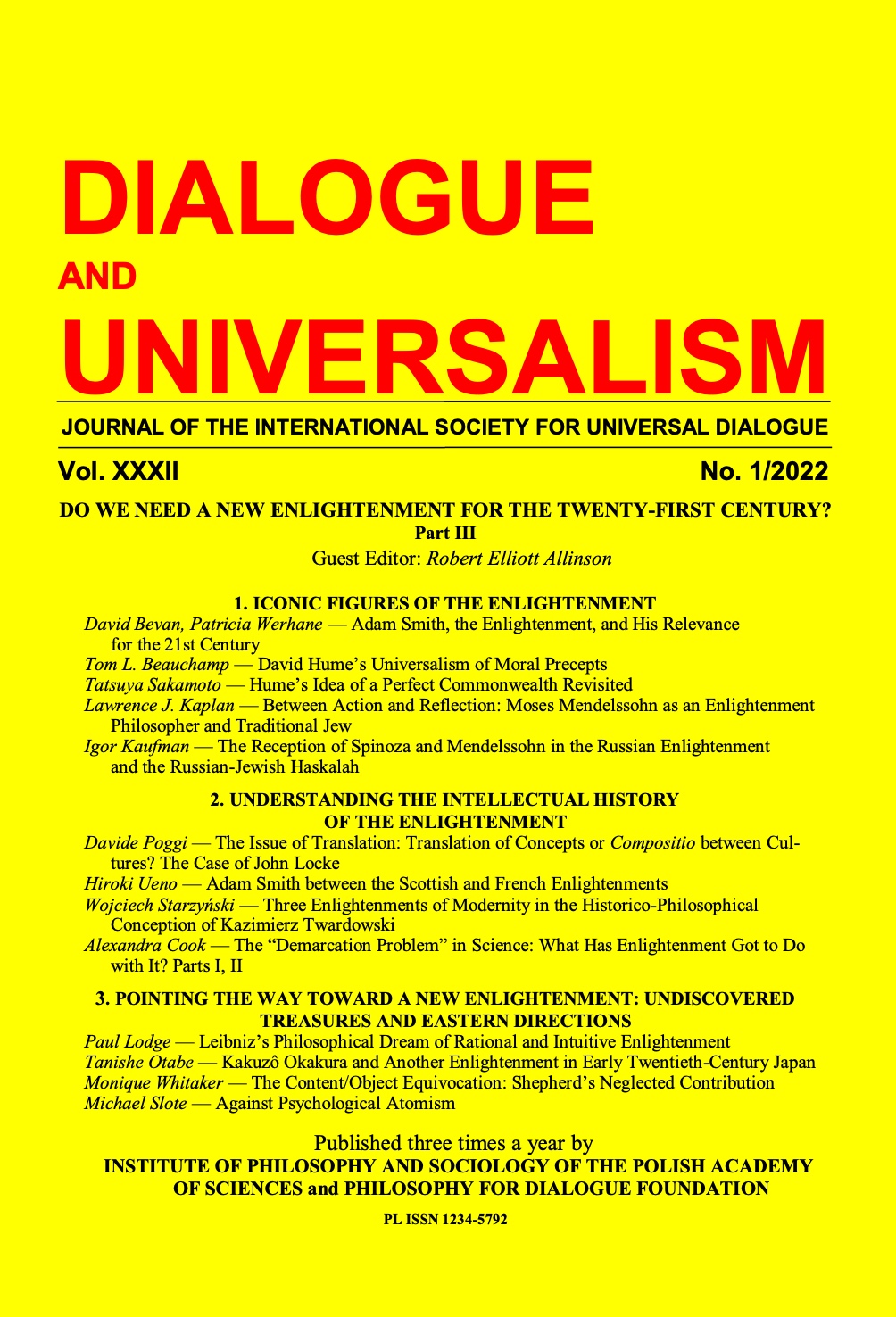THE ISSUE OF TRANSLATION: TRANSLATION OF CONCEPTS OR COMPOSITIO BETWEEN CULTURES? THE CASE OF LOCKE
THE ISSUE OF TRANSLATION: TRANSLATION OF CONCEPTS OR COMPOSITIO BETWEEN CULTURES? THE CASE OF LOCKE
Author(s): Davide PoggiSubject(s): Philosophy
Published by: Instytut Filozofii i Socjologii Polskiej Akademii Nauk i Fundacja Filozofia na Rzecz Dialogu
Keywords: Translation studies; Enlightenment; République des Lettres; John Locke; Pierre Coste; communicative ethics; language
Summary/Abstract: It was plain long before the 20th century that both the act of translation and the translator’s task were quite complex: it became clear and evident during the Enlightenment, within the République des Lettres, with the emergence and gradual affirmation of national languages. In this general framework, the French translation of John Locke’s Essay concerning Humane Understanding is one of the main protagonists of the circulation of texts and ideas: Pierre Coste’s solutions follow the strategy adopted by Jean Le Clerc in his Extrait of the Essay published in the “Bibliotheque universelle et historique” in 1688 and, in primis, by Locke himself, as a theorist of communication/translation (in the Third Book of the Essay): the French translation is thus the exemplar par excellence and the embodiment of Locke’s theories of language, communication, and communicative ethics, all axed on the concepts of “agreement” and “consensual rationality.”
Journal: Dialogue and Universalism
- Issue Year: 2022
- Issue No: 1
- Page Range: 103-126
- Page Count: 24
- Language: English

